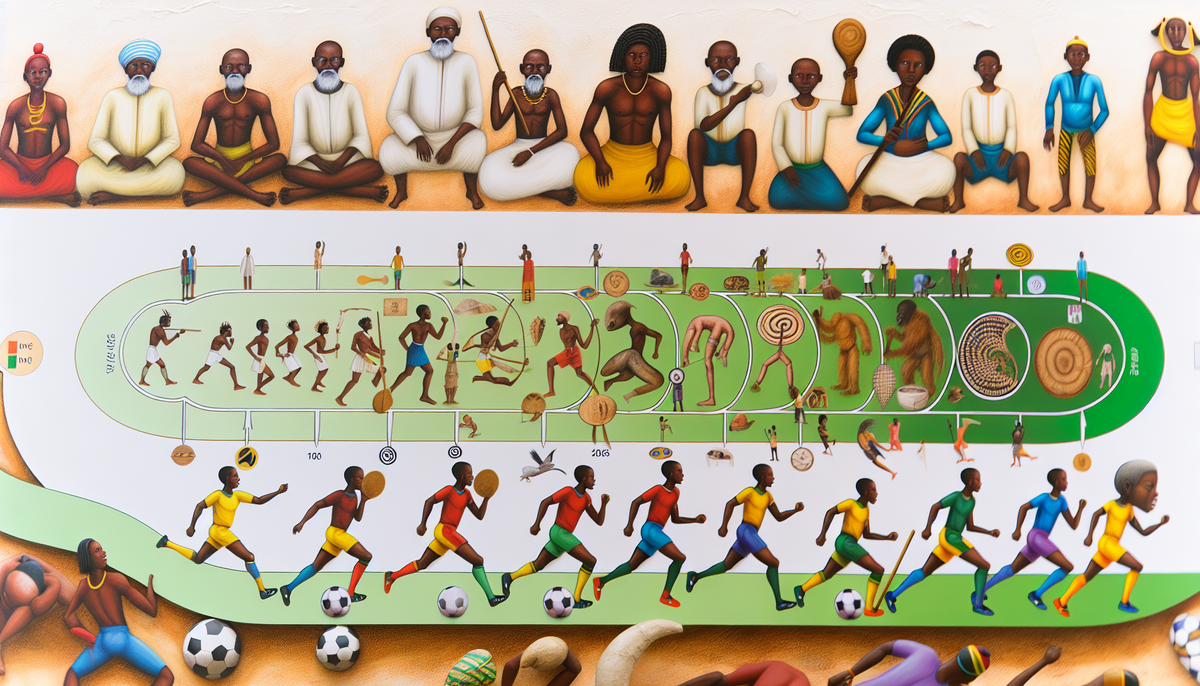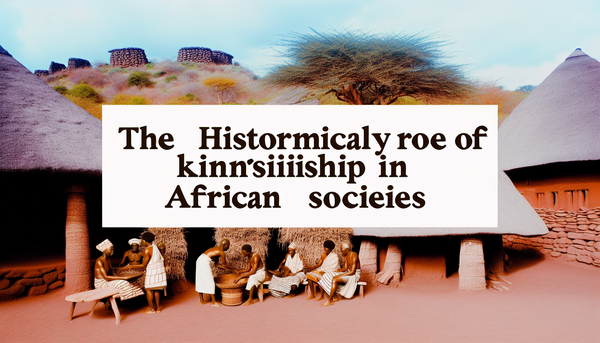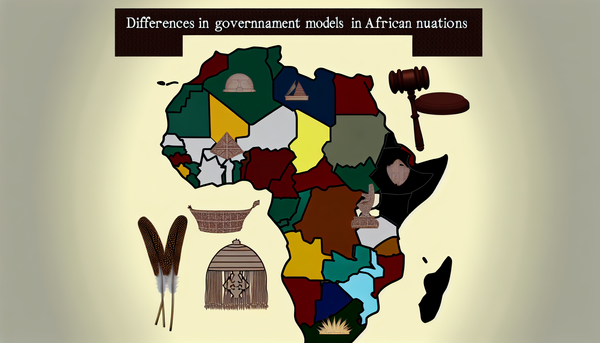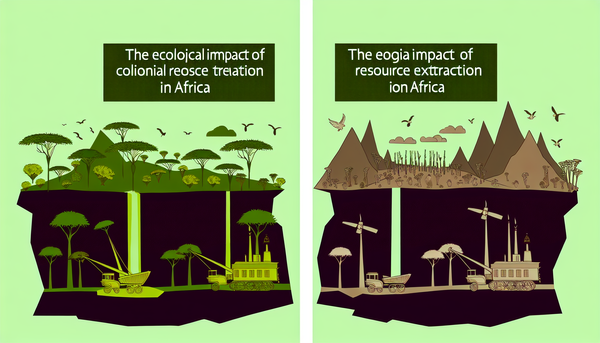The Evolution of African Sports and Their Cultural Significance

Origins and Historical Development of Traditional Sports
Traditional sports in Africa have roots that stretch back thousands of years, evolving alongside the continent's diverse cultures and societies. Initially, many of these sports were intertwined with rituals and ceremonies, serving not only as entertainment but also as a means of cultural expression and community bonding. Activities like wrestling, stick fighting, and various forms of dance were commonly practiced and often held during festivals, showcasing strength, skill, and agility.
As societies developed, so did the organization and codification of these sports. For instance, traditional wrestling, prevalent in regions like West Africa, became a way to resolve disputes and assert social status. Similarly, sports like dambe (a type of boxing) in northern Nigeria or the Calabash throwing in West Africa highlight the rich diversity in local athletic practices.
Colonial influences led to a fusion of indigenous sports with Western games, creating a unique sporting landscape. However, the enduring importance of traditional sports persists today, as they continue to foster cultural identity and social cohesion. Initiatives to revive and promote these sports have gained momentum, ensuring that they remain a vital part of Africa's cultural heritage in the modern age.
Impact of Global Events on African Athletic Practices
Global events have significantly influenced African athletic practices, reshaping how sports are perceived and played across the continent. One of the most notable influences came from international competitions such as the Olympics and the FIFA World Cup. These events provided a platform for African athletes to showcase their talents, garnering international attention and fostering a sense of pride among their nations. Success stories, such as Ethiopia’s Haile Gebrselassie and Kenya's dominance in long-distance running, have inspired countless young athletes to pursue sports professionally.
Furthermore, the increase in global media coverage has introduced African sports to a wider audience, leading to enhanced sponsorship and investment opportunities. The visibility of African sports is crucial in attracting support and resources, which can lead to improved training facilities and access to coaching expertise.
However, with globalization comes the challenge of cultural dilution, as traditional sports often take a back seat to more commercially-driven events. The influence of Western sports leagues has encouraged a trend toward basketball and soccer, sometimes overshadowing indigenous practices. Despite this, many countries are actively working to blend modern influences with their rich sporting traditions, ensuring that the essence of African athleticism continues to thrive in a globalized world.
Role of Sports in Promoting Unity and Identity
Sports serve as a powerful catalyst for promoting unity and identity across African nations, bridging cultural, ethnic, and social divides. In many countries, major sporting events can transform a nation’s landscape, temporarily setting aside political tensions and forging a collective identity. The fervor surrounding soccer, for instance, often brings together fans from diverse backgrounds, instilling a sense of camaraderie among supporters, regardless of their differences.
National teams competing in continental fixtures, such as the Africa Cup of Nations, rally citizens around a shared sense of pride and purpose. These events not only enhance national morale but also serve as symbolic platforms for expressing local cultural heritage. The vibrant rituals associated with traditional sports further reinforce cultural identities, allowing communities to celebrate their unique histories and values.
Moreover, sports strategies focusing on diversity and inclusion have proven effective in addressing issues of marginalization. Initiatives that encourage participation among various communities promote social cohesion and empower individuals, particularly youth, by fostering leadership skills and teamwork. In essence, sports in Africa act as a unifying thread, enabling individuals to transcend societal barriers and strengthen their sense of belonging to a national and cultural identity, contributing to more harmonious communities.
Prominent Athletes and Their Influence on Society
Prominent athletes in Africa have played a vital role in shaping social dynamics and influencing societal change. Figures like Nelson Mandela exemplified how sports could transcend politics; he famously used rugby to unite a divided nation during South Africa's post-apartheid era. The victory of the Springboks in the 1995 Rugby World Cup symbolized national reconciliation, demonstrating the profound impact sports can have on collective identity and healing.
Other athletes, such as African sprinting legends like Usain Bolt and Kenya's Eliud Kipchoge, have not only broken records but also served as role models, inspiring younger generations to pursue excellence in their respective fields. Their global success contributes to national pride and motivates youth to engage in sports, which can lead to better social and educational outcomes.
Furthermore, many athletes leverage their platforms to address pressing social issues, advocating for health awareness, education, and gender equality. They inspire social movements and drive change through initiatives, charity work, and public campaigns. In this way, prominent athletes often act as ambassadors for their communities, using their visibility and influence to create a positive impact in society. Their contributions extend beyond the sports realm, fostering hope and inspiring aspirations across the continent.
Government Policies and Investment in Sport Infrastructure
Government policies and investment in sports infrastructure are crucial for developing athletic talent and promoting health and unity within African nations. Many governments recognize the potential of sports to invigorate economies, enhance national pride, and foster social cohesion. As a result, countries have begun to prioritize sports through various initiatives and funding programs, emphasizing the need for comprehensive sports development strategies.
Investments in facilities such as stadiums, training centers, and community sports complexes have seen significant growth in recent years. For example, nations like Kenya and South Africa have renovated and built sports infrastructures aimed at supporting both elite and grassroots athletes. These facilities are essential for nurturing talent, providing young athletes with access to appropriate training environments and coaching expertise.
Additionally, policies that promote inclusivity in sports are being implemented to ensure equal opportunities for all, regardless of gender or socio-economic background. Programs targeting youth engagement and talent identification have emerged, supported by government funding and partnerships with non-governmental organizations.
While challenges remain, such as limited resources and prioritization of popular sports over traditional games, the momentum towards improved sports infrastructure signals a commitment to cultivating athletic excellence. Ultimately, these investments lay the groundwork for a healthier, more active society while showcasing the immense potential of African sports on the global stage.
Youth Engagement and Grassroots Sports Programs
Youth engagement in sports is critical for fostering talent and promoting healthy lifestyles among young people in Africa. Grassroots sports programs play an essential role in this endeavor, providing a foundation for physical activity, skill development, and social integration. These initiatives encourage participation from diverse communities, creating opportunities for youth to build teamwork skills, discipline, and leadership qualities.
Many grassroots sports programs focus on inclusivity, ensuring that both boys and girls have equal access to training and competition. Such initiatives are vital in challenging gender stereotypes and empowering young women in sports, thereby fostering greater societal acceptance and support for female athletes.
Organizations and governments have recognized the importance of investing in grassroots sports, often partnering with local communities, schools, and non-profits to implement programs that target underprivileged areas. These programs not only promote physical health but also contribute to educational outcomes and social cohesion by teaching important life skills.
Moreover, grassroots programs often serve as a pathway to professional sports, providing a talent identification mechanism for scouts and coaches. By prioritizing youth engagement in sports, these initiatives not only inspire the next generation of athletes but also instill a sense of pride, belonging, and hope for the future among youth across the continent.
Future Trends and Technological Innovations in Sports
The future of sports in Africa is increasingly shaped by technological innovations and emerging trends that enhance athletic performance, fan engagement, and overall experience. Wearable technology, such as fitness trackers and smart apparel, allows athletes to monitor their performance metrics, recover from injuries more efficiently, and optimize their training regimens. This data-driven approach not only benefits professional athletes but is gradually becoming accessible to athletes at all levels.
Moreover, advancements in sports analytics have revolutionized how teams strategize and assess player performance. Data analytics tools enable coaches to make informed decisions, enhance game strategies, and better understand opponents. This shift towards a more scientific approach is creating a competitive edge for African teams within regional and international competitions.
Virtual and augmented reality are also emerging as transformative technologies in sports training and fan experiences. These technologies provide immersive training simulations, offering athletes the chance to refine their skills in a risk-free environment and engage fans with interactive experiences.
Lastly, the rise of e-sports presents a unique opportunity for African sports industries, attracting a younger audience and fostering new talent in digital competition. As these trends continue to evolve, they promise to reshape the landscape of sports in Africa, driving innovation while nurturing the next generation of athletes and fans.



